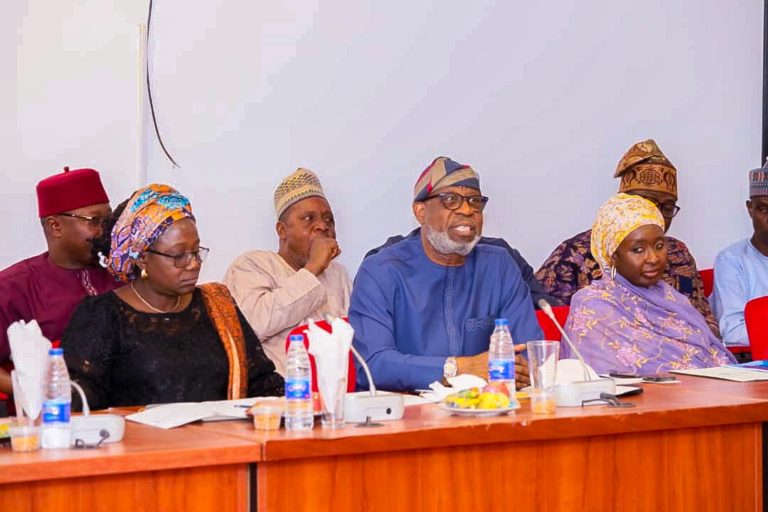From Charity Nwakaudu, Abuja
The Joint Committee of the Senate and House on Solid Minerals has rejected the proposed N9 billion budget for the Ministry of Solid Minerals Development.
The Chairman of the Senate Committee on Solid Minerals, Senator Ekong Sampson, made the committee position known at a joint session in Abuja.
Senator Sampson, who frowned at the inadequate allocation, stated its inability to support the ministry’s ambitious roadmap.
He stressed the need for a significant upward review to accelerate economic diversification efforts in the sector.
“At a time when the country is grappling with the urgent need to diversify the economy, the budgetary allocation to the solid minerals sector is grossly insufficient. The current estimates will not support the ambitious roadmap laid out by the Ministry of Solid Minerals Development,” he stressed.
Senator Sampson further stressed the need for greater investment in exploration, data gathering, and infrastructure to unlock the sector’s potential.
“Nigeria is richly endowed with abundant mineral resources. However, without bold steps to harness these resources, we will continue to fall short of our economic goals. If we are serious about diversification, this is the sector we must prioritize,” he added.
The committee urged the Federal Government to align the sector’s funding with its strategic importance.
“This is not an ordinary review; it is a national imperative,” Senator Sampson asserted.
He warned that inadequate investment in the sector could undermine efforts to stabilize and grow the economy.
On his part, the Chairman House Committee on Solid Minerals Development, Jonathan Gaza Gbefwi, emphasized that insufficient funding could derail Nigeria’s economic diversification.
“The global energy transition is already underway, and Nigeria risks being left behind if we do not act decisively. Solid minerals hold the key to diversifying our economy, yet the current budget allocation does not reflect the urgency of this moment,” he stated.
In their various presentations, Senator representing Plateau Central Senatorial District Senator Diket Plang, raised concerns about discrepancies in the ministry’s budget, pointed out a potential topographical error, suggesting that an allocation listed as ₦9 million might have been intended as ₦900 billion.
“The function of the ministry is to identify and exploit the country’s riches through exploration. Any error in this process could jeopardize the critical work of adding value to Nigeria’s economy,” Senator Plang stated.
Also the Senator representing Kogi Central District, Natasha Akpoti, highlighted the global importance of solid minerals in driving technological advancement and energy transitions.
She called for detailed accountability on revenue from resources like lithium and nickel, and updates on the Central Bank of Nigeria’s gold purchases.
“Solid minerals like lithium and nickel are at the core of the global shift towards smart energy solutions and Nigeria must prioritize this sector over oil and gas to remain competitive,” she emphasized.
Lawmakers insisted that sufficient funding would not only attract investments but also generate significant revenue and create jobs.
On his part, the Minister of Solid Minerals Development, Dr. Dele Alake, stressed the need for increased funding.
“The current budget of ₦500 billion is just a starting point, far from what is truly required to transform the solid minerals sector. We must take bold steps to capitalize on our vast mineral wealth” Dr. Alake stated.
The joint committee resolved to engage stakeholders and the Federal Government to ensure that the ministry receives adequate funding to drive sustainable economic growth and reduce Nigeria’s dependence on oil.
